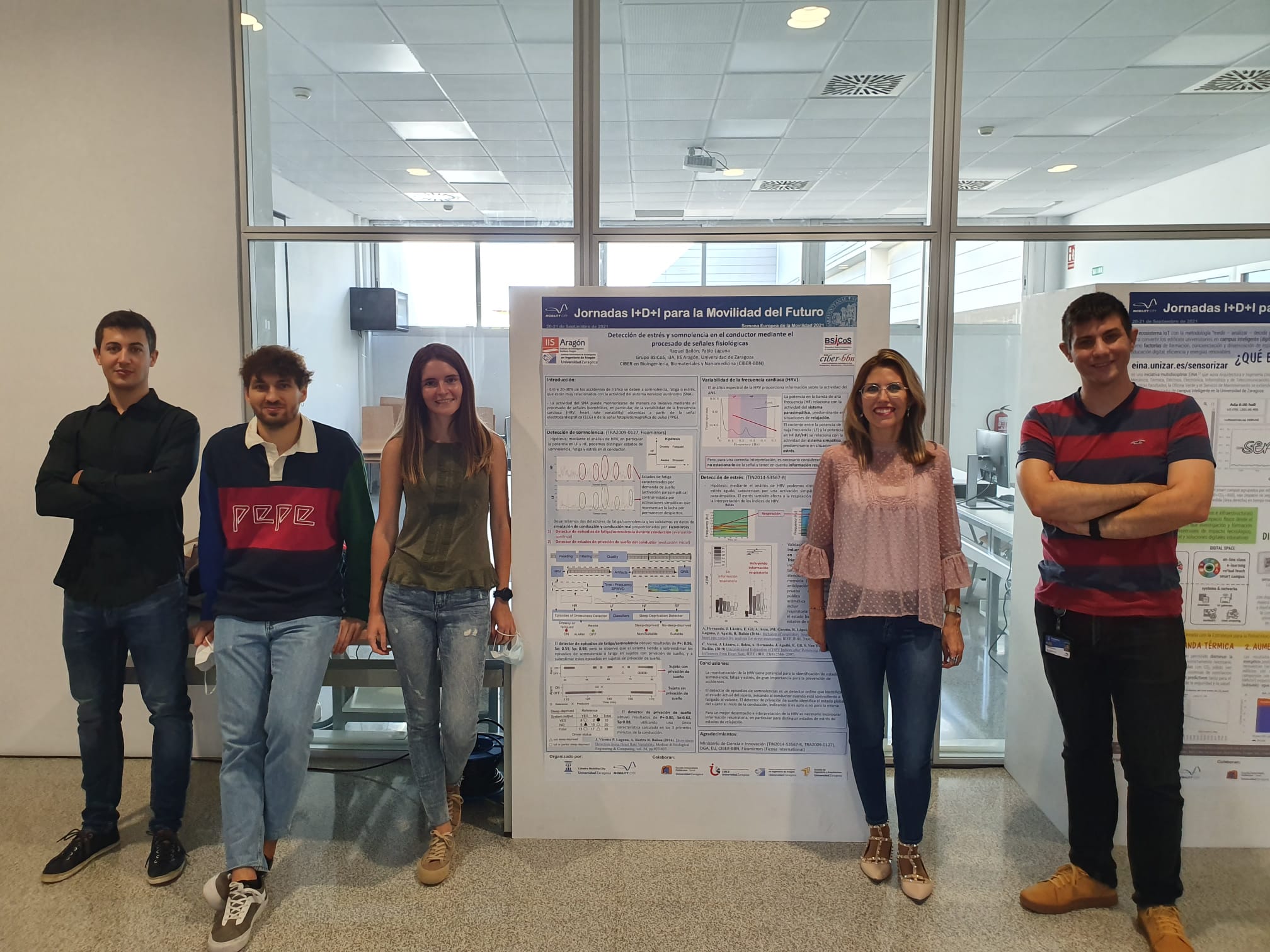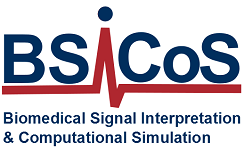27 Sep, 2021
Raquel Bailón, researcher at the BSICOS group, was at the R + D + i Conference for the Mobility of the Future. There, she presented her work on “Detection of stress and drowsiness in the driver through the processing of physiological signals”.
Between 20-30% of traffic accidents are due to drowsiness, fatigue or stress, which are closely related to the activity of the autonomic nervous system (ANS). The activity of the ANS can be monitored non-invasively by processing biomedical signals, in particular, of the heart rate variability (HRV) obtained from the electrocardiographic (ECG) signal or the photoplethysmographic signal of pulse (PPG).
HRV monitoring has the potential to identify states of drowsiness, fatigue and stress, of great importance for accident prevention. A drowsiness episode detector has been developed that identifies the current state of the person, alerting the driver when they are drowsy or fatigued at the wheel. In addition, a sleep deprivation detector has been developed, which identifies the global state of the person at the beginning of driving, indicating whether or not they are suitable for it. It is emphasized that for a better performance and interpretation of HRV it is necessary to incorporate respiratory information and reduce the effect of movement artifacts.
Picture: Raquel Bailón, to the right of the poster with other colleagues from BSICOS group.

